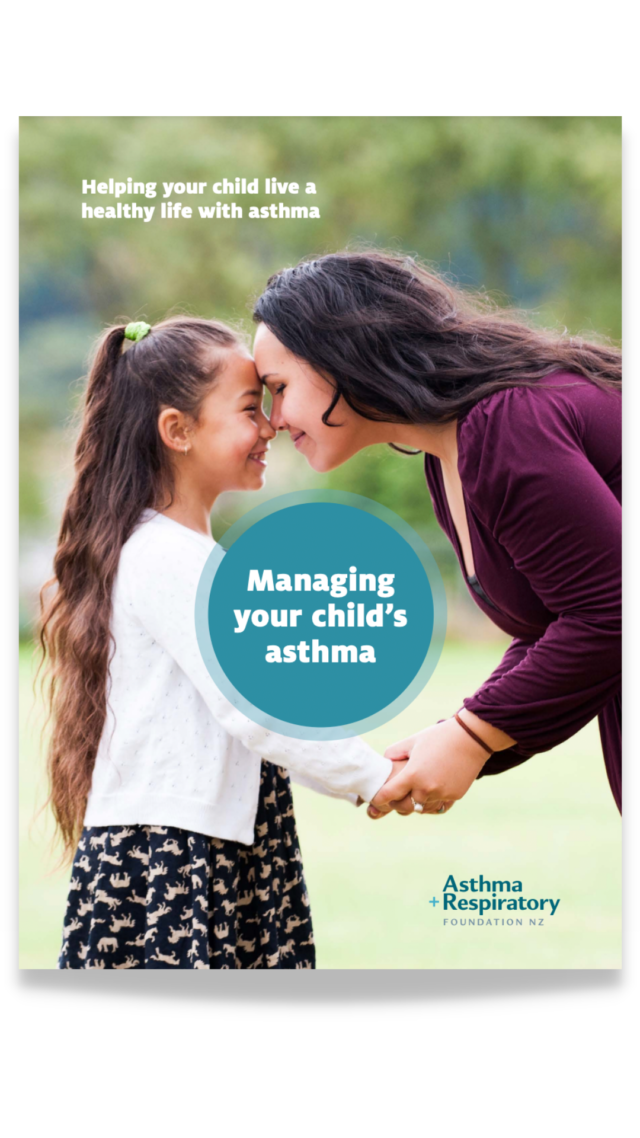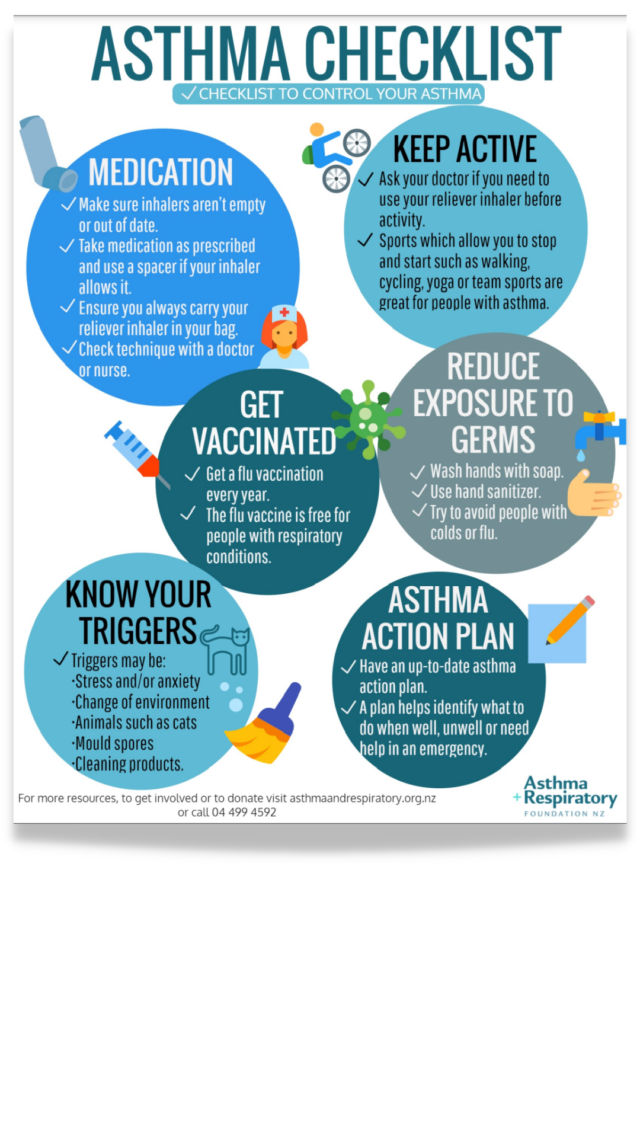Medication plays a very important role in the day-to-day management of asthma.
It is important to understand how your medicines work and then to take them as directed by your healthcare practitioner.
This following information is about medication for people with asthma aged 12 years and older.
For information on asthma medication for children under 12 years of age, click here.
There are two main types of asthma medicine:
1. Preventer inhalers treat the inflammation in your airways, which is the underlying cause of asthma. This medication reduces the risk of an asthma flare-up (attack). Read more.
2. Reliever inhalers bring quick relief from asthma symptoms (cough, wheeze, tightness in the chest, shortness of breath). Reliever medication works by relaxing the bands of muscles around the airways which tighten during an asthma flare-up (attack). Read more.
Recommended treatment for adults and adolescents (aged 12 years and over)
Until recently, the majority of people with asthma were treated by using separate preventer and reliever inhalers. Now the recommended treatment for people with asthma aged 12 years and over is a combination 2-in-1 inhaler containing the preventer medicine budesonide and the reliever medicine formoterol. The brand names for this inhaler are Symbicort® and DuoResp Spiromax®. This inhaler can be used as either a reliever treatment alone, or as a regular scheduled maintenance and reliever treatment. Read more.
Inhalers
Inhalers are one of the most common and effective ways to treat asthma. If you are prescribed an inhaler, you need to know how to use it properly. Your healthcare practitioner should demonstrate how to use your inhaler when you first get one, and you should regularly check your inhaler technique with your healthcare practitioner, pharmacist, or asthma educator.
If you don’t use your inhaler correctly, you won’t get the full dose of your medicine.
There are two main types of inhaler devices in New Zealand:
Pressurised metered dose inhalers are often called “puffers”. These devices deliver the medicine in a gas form directly to your lungs. Puffer inhalers work best when used with a spacer. Read more.
Dry powder inhalers deliver medicine in a powder form. These inhalers are also known as breath-activated inhalers, as you breathe in the medicine directly from the inhaler. Read more.
Other devices that are used to manage asthma are:
Spacers are plastic cylinders that attach to puffer inhalers. Spacers help ensure that the medicine reaches your lungs and doesn’t just end up in the back of your mouth and throat. Spacers are recommended for everyone using puffer inhalers, including adults. Read more.
Nebulisers are devices that turn liquid medicine into a fine mist that you can breathe in easily. A nebuliser can be useful for people with asthma; however, research has found that reliever puffers used with spacers can be just as effective. Read more.
Add-on treatments
If you are using your inhalers exactly as prescribed, but you are still having asthma symptoms then your healthcare practitioner may consider additional treatments.
These are called ‘add-on’ treatments because they are taken in addition to your regular inhalers.
Prednisone is a tablet form of a preventer medication. It is used in severe episodes of asthma, on top of your regular inhalers. If you are having difficulty controlling your asthma symptoms, your healthcare practitioner may prescribe a short course of prednisone. Read more.
Montelukast is a tablet form of medicine that is used in addition to regular inhalers, when you are having difficulty controlling your asthma. It works by blocking some of the chemicals that cause inflammation and narrowing of the airways. Read more.
Biologics are a new treatment used for people who have severe, uncontrolled asthma. They are used when other medications are not working to control asthma and are only available in New Zealand to people who meet certain criteria. These treatments are given as regular injections. Read more.
Flu and COVID-19 vaccines
It is very important for people with asthma to keep up to date with flu and COVID-19 vaccinations. For people with poorly or partially controlled asthma, flu and COVID-19 can make you very sick and cause serious asthma flare-ups (attacks). Read more.




